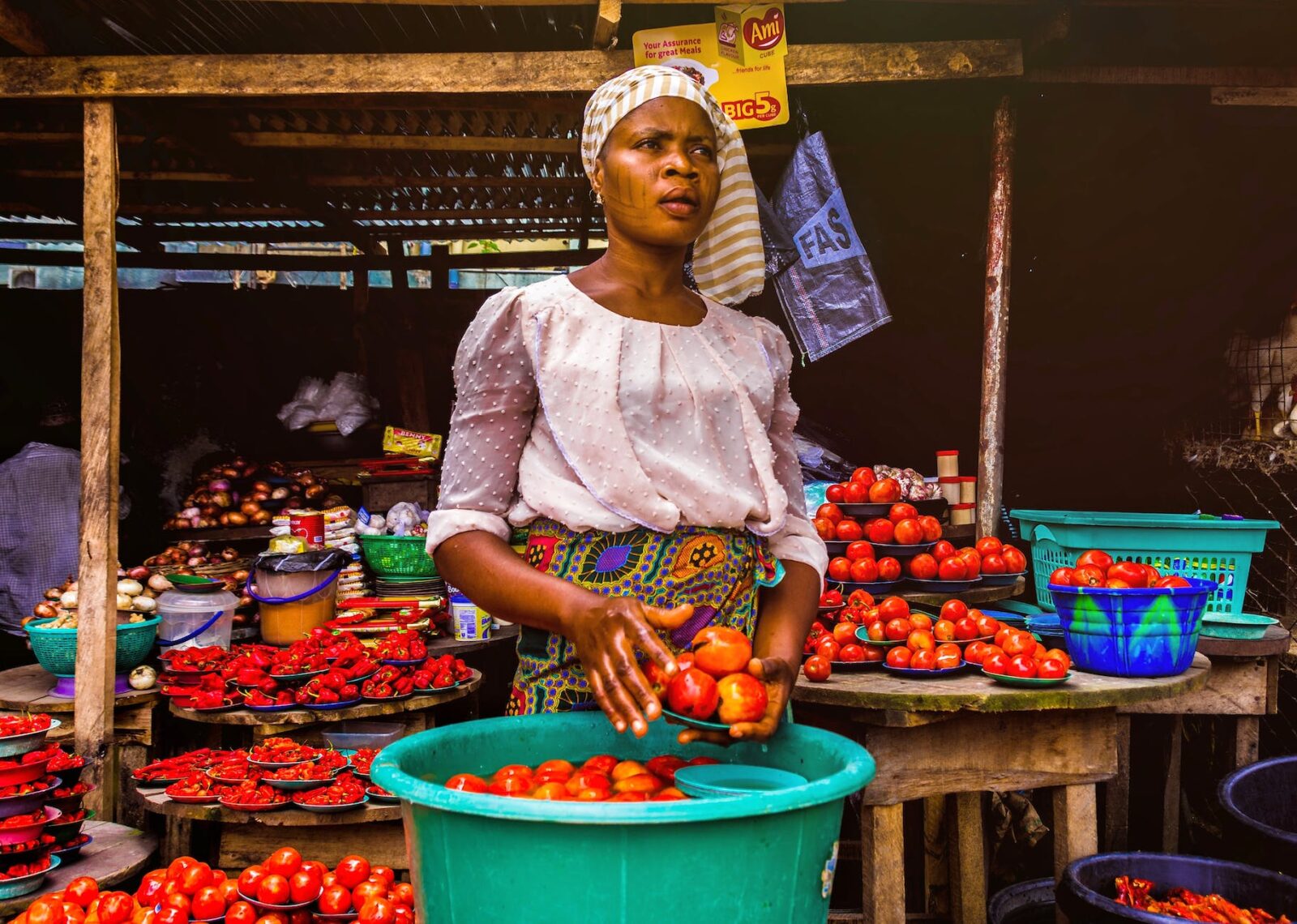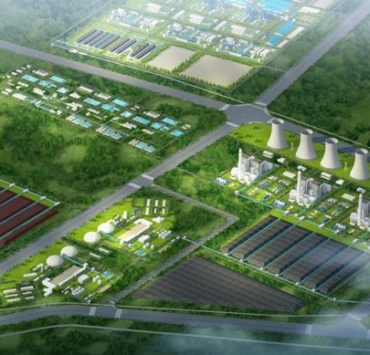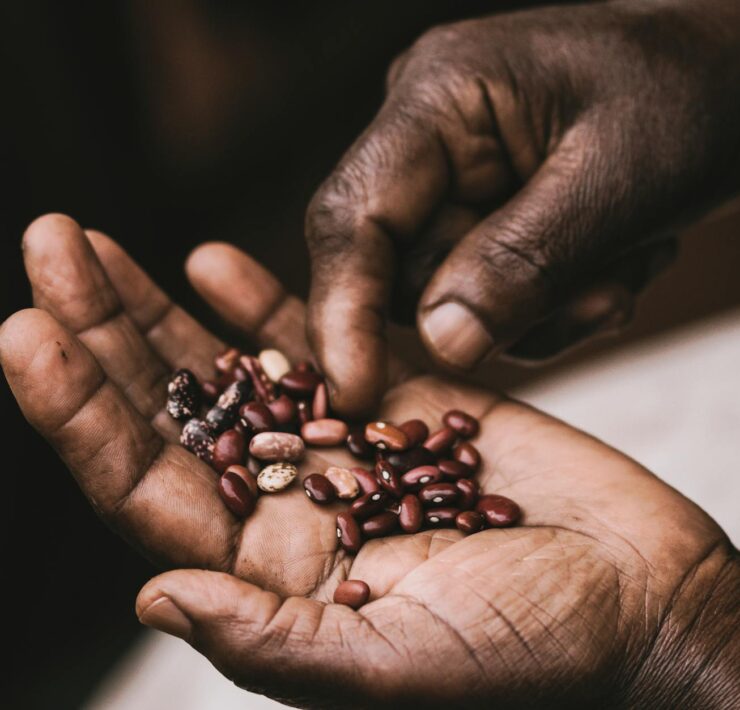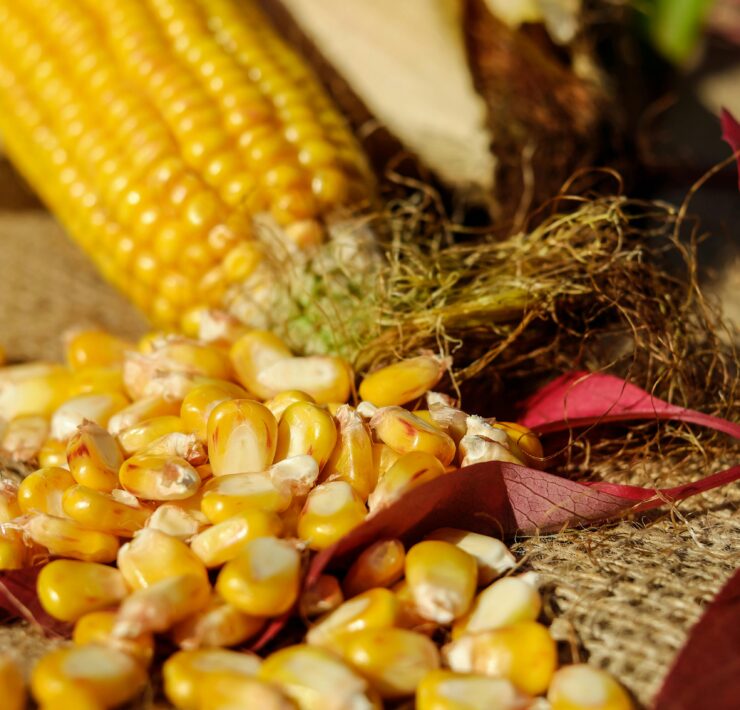Tackling the climate crisis by addressing food consumption

GRAIN is a small international non-profit organisation that works to…
It is now common knowledge that we have to transform both how we produce and how we use energy to disrupt the current trajectory of climate change. Simply switching from “polluting” energy sources to “clean” ones will not work. We actually have to produce and use less energy altogether if we are to keep our planet liveable while fighting for justice and equity in terms of who can access and consume energy.
Some people call this “de-growth”, or getting off the mindset that considers economic growth as the measure of our success as societies. Research shows that “greening” economic growth is not enough, as it would take us hundreds of years to achieve the impact we need.[1] We have to radically cut emissions and we have to do it fast. And, politically, we know that decolonisation – securing justice in the distribution of resources, power and wealth – has to be our compass.[2] It is a small number of highly industrialised societies that are driving the profligate overconsumption of our planet’s resources.
The same holds true when it comes to food, the second largest source of global climate emissions after fossil fuels. Not only do we have to change how we produce food, but also how we consume it. This may seem self-evident, but, like the proverbial “elephant in the room”, the consumption side of the ledger is regularly ignored or insufficiently addressed – and it is becoming increasingly urgent to do so. Global food consumption alone could add nearly 1°C to planetary warming by 2100 and we may already be reaching the 1.5ºC limit set by the Paris Agreement this year, in 2023.[3] The time we have left to reasonably alter this scenario is running out.
Change the system
Today’s climate movement, born out of a razor-sharp focus on the role of fossil fuels as the primary driver of our climate’s destabilisation, calls not only for renewable energy but also for major cutbacks in the exploration, production and use of energy that serves wealthier countries. This requires deep, structural changes to how these societies use and consume energy. It means more collective transportation, more durability and repairability of products, and far less consumption of non-essential goods. Addressing and reining in consumption in a broad sense also means less manufacturing, less work, less travel, more time doing “non-productive” (and therefore non-destructive) things. This relies on realising what is scarce and repurposing it. In other words, we have to adopt cultures of sobriety – but not the neoliberal one, otherwise known as austerity, which punishes the poor.
With the food system, it’s similar. Over the past century, much of the global food system was industrialised through the introduction of chemical inputs, largescale monoculture crops, factory animal farms, heavy mechanisation and irrigation. Local food systems were dismantled and globalised, and transnational corporations seized control over every aspect of the food chain. Because of this, the industrial food system now accounts for over a third of global greenhouse gas emissions, while also being the leading cause of deforestation, water crises, biodiversity collapse and numerous diseases. The World Bank, which played a major part in promoting this catastrophic model, estimates that the global food system now costs us US$12 trillion annually in hidden economic, environmental and social costs.[4]
The food and agribusiness corporations that control and benefit from this food system were slow to propose any solutions to the current crisis. But, as concern with the climate crisis has gradually extended to the food sector, this has changed, and over the past few years most of these corporations have announced “net zero” plans and teamed up with governments and international agencies on programmes to reduce emissions in agriculture. All of these corporate initiatives revolve around techniques and technologies that they claim can make farms more efficient, and all of them assume that production and consumption can be maintained. In fact, all of the corporate models are built on projected growth in their sales of high emissions products, brandishing the lie that these can be “carbon neutral”, “green” and “deforestation-free”.[5] No surprise, then, that net zero pledges from food corporations rely heavily on carbon offsets.[6]
Obviously, this is not going to work. But it’s not necessary or desirable either. The reality is that the industrial food system is organised around corporate profit, not the allocation of finite resources (and emissions) towards ensuring that all eight billion people on this planet have enough nutritious food to eat. We have a global food system built on the mass production of a few commodity crops for conversion to meat, dairy and processed foods, plus the steady supply of luxury items to the wealthy (think of chocolate, flowers and strawberries) – all of which generate huge emissions without providing much nutrition in return.
This corporate food system is also wasteful. One-third of the food that is produced is wasted. That means it ends up in landfills where it generates significant greenhouse gases, especially methane. Moreover, much of the food that corporations produce is “junk” to begin with. Nestlé – the Swiss company that dominates global grocery shelves and spends hundreds of millions of dollars every year on advertising and lobbying to ensure sales of its products – has acknowledged that “the nutritional value of less than half its portfolio of mainstream food and drinks can be considered ‘healthy’ using a commonly accepted definition.”[7] Think of all the lands, water and energy that could be repurposed towards the production of nutritious foods if we did away with the Nestlés of this world.
Consumption is corporate driven
To address the climate crisis, we need, in an equitable manner, to reign in the consumption and production of the industrial meat, industrial dairy and unnecessary foods privileged by corporations. Instead, we have to give priority to the production and consumption of local, healthy foods. The science demonstrating how much these industrial foods contribute to climate havoc is advancing.[8] We now know that reducing consumption of industrially produced red meat and dairy among the well-off or well-fed can reduce diet-related climate emissions substantially – by 75%, according to researchers at Oxford University.[9] And replacing animal-based foods with pulses, nuts, fruits and vegetables provides major health benefits as well: a lower risk of cardiovascular disease and type 2 diabetes, and reduced mortality from diet-related illness.
Yet these changes are not to be trivialised as, or reduced to, individual behaviour. We overproduce and overconsume food and energy collectively. Corporate agendas – which are propelled against the public interest through marketing, political lobbying and trade agreements – drive both overproduction and overconsumption. (See box on Jalisco.) The global trade regime relies on and reinforces ever more consumption, stimulation and growth. Today, according to the World Trade Organisation, emissions generated by the production and transport of exported and imported goods and services represent 20-30% of global greenhouse gas emissions. In the case of fruits and vegetables, it’s 36%.[10]
Or consider sugar. While the UK’s climate authorities have recommended a 20% cut in meat and dairy consumption by 2030, and a 35% cut for meat by 2050, sugar is now coming into focus.[11] The UK produces more than enough sugar for its people. And this production comes at a “climate” cost related to very high land and water use, the loss of topsoil, biodiversity erosion and misdirected subsidies. The health cost is, of course, just as worrisome, with two-thirds of British society either overweight or obese. But the country imports almost twice the amount of sugar it over-produces, generating an even higher climate bill.[12] This excess consumption is driven not by consumer demand but by corporate greed. Sugar is a cheap food ingredient that increases sales, especially in the form of highly processed foods. Imports are baked into the UK’s many free trade agreements to support corporate interests, not the public’s. British groups are now demanding a full restructuring of the industry – all the way to redirecting sugar subsidies to make fruit and vegetables more affordable instead.
Our chance to move
As already noted, while individual action is important, we cannot reduce the issue to individuals or place the responsibility on them. Scaling back imports in countries where industrial meat, dairy and unnecessary foods are consumed in excess, plus making production systems more ecological, makes eminent sense. And we have to find ways to remove the corporations that are causing all this damage in the first place.
This requires some hard policy shifts and organised pressure from social movements. Fortunately, awareness that we need serious changes through collective action has grown as a result of people’s direct experience of climate breakdown.
A range of practical steps forward have already been developed by activists and researchers, and need to be urgently ramped up:
- Eliminate food waste, a major source of emissions.
- Scale back excess consumption in minority countries, both of industrial meat and dairy as well as unnecessary foods (off-season fruits and vegetables, luxury items like berries and sweets, etc). Taxes, tariffs and other fiscal tools can play a role, as can assertive measures by food distributors. Trade agreements that drive oversupply patterns, like the EU-Mercosur deal, also need to be stopped or rescinded.
- Cut the production of industrial meat and dairy in Europe, North America, Brazil, Australia and New Zealand through aggressive measures like herd reductions.
- Support farmers to transition off chemical fertilisers and ban confined animal operations, which generate tremendous amounts of nitrous oxide and methane, respectively.
- Rethink and reboot food distribution system. Cities need to reorganise food retail so that stores and markets are equally distributed and are providing healthy foods instead of ultra-processed items. We should also look at zoning or other public policies to limit the presence of corporations and protect local vendors and cooperatives. We need to better socialise food distribution. People are already trying to achieve this by setting up food social security systems, fighting for local permits and national social protections for street vendors, and trying to strengthen public markets through price controls, subsidies, and public infrastructures. So much more can be done on this front.
- Remove regulations and laws that undermine local food producers and replace them with policies that support peasant-led agroecological production and marketing systems.
- Finally, we need to stop the land and water grabs that are being silently waged across the world to expand the production of agriculture monocultures for export.[13] We also need to support the broad social movements that are mobilising, from Argentina to Arizona and from Cameroon to France, to keep land and water under social control as common goods belonging to peoples in their territories, not commodities to be exploited for the benefit of a few.[14]
In a nutshell, we need to build more public systems, more collective action and new economies to achieve the justice people are yearning for. But we need to move fast. Corporations and other climate criminals are not going to get out of the way unless we make it happen.
How free trade agreements drive consumption patterns that destroy rural communities
Witness how this plays out in the communities around El Grullo in the Mexican state of Jalisco, an example similar to many others. Before the North American free trade agreement (NAFTA) came into force, in 1994, the lands were managed collectively, with peasants growing a mix of traditional food crops and pasturing animals in the hillside forests. People had access to water, land and food. The surplus of maize, cheese and other foods they produced were sold in the city to generate some income.
Then came NAFTA. People lost their local markets for maize, under a blanket of cheap subsidised US imports. The Mexican government began a campaign to encourage people to switch to monocropped contract production of potatoes and other crops for the fast food companies. Thus began a cycle of debt, chemical use, deforestation and the undermining of people’s collective control over territories.
Today, communities are poorer than ever and the lands are devastated. Lands and production have been taken over by organised crime and corporations, who focus on the large-scale production of agave (tequila) and of environmentally- and socially-destructive export crops like avocados, berries and grapes, which go mainly to supermarkets in the US and Canada. The thriving food systems of Jalisco were destroyed to make way for a system of production and consumption organised around corporate profit.
This situation is not going to be resolved by making the grape farms more efficient or sustainable. It can only be about the communities taking back control of their territories, and consumers in the US and Canada saying goodbye to imported grapes.
(Text is based on an interview with members of the Colectivo por la Autonomía)
[1] Jegim Vogel and Jason Hickel, “Is green growth happening? An empirical analysis of achieved versus Paris-compliant CO2–GDP decoupling in high-income countries”, The Lancet, Sep 2023: https://www.thelancet.com/journals/lanplh/article/PIIS2542-5196(23)00174-2/fulltext
[2] On this, see the excellent presentations at “Beyond Growth 2023”, Brussels, 15-17 May 2023: https://www.beyond-growth-2023.eu.
[3] Catherine Ivanovitch et al, “Future warming from global food consumption”, Nature Climate Change, 6 Mar 2023: https://www.nature.com/articles/s41558-023-01605-8. Berkeley Earth, “September 2023 temperature update”: https://berkeleyearth.org/september-2023-temperature-update/
[4] World Bank, “Food finance architecture: Financing a healthy, equitable, and sustainable food system”, 23 Sep 2021: https://documents.worldbank.org/en/publication/documents-reports/documentdetail/879401632342154766/food-finance-architecture-financing-a-healthy-equitable-and-sustainable-food-system
[5] Note that “carbon neutral” will be banned on product labels – but not on services like airline tickets – in the European Union as of 2026. See Nikolaus Kurmayer, “EU reaches deal banning climate-neutral product claim”, 21 Sep 2023: https://www.euractiv.com/section/energy-environment/news/eu-reaches-deal-banning-climate-neutral-product-claims/
[6] For example, the US candy giant Mars Inc. admits that it would need to offset at least 20% of its emissions to get to net zero. Mars, “Net zero road map”, Sep 2023: https://www.mars.com/sites/g/files/jydpyr316/files/2023-09/Mars%20Net%20Zero%20Roadmap%202050_2.pdf
[7] Alistair Gray, “Nestlé says less than half of its mainstream food and drinks are considered ‘healthy’”, Financial Times, 21 Mar 2023: https://www.ft.com/content/8d42f7e8-72a6-4d85-9990-ad2a2cd0da21
[8] See summary by Physicians for Responsible Medicine, 29 Oct 2023: https://www.pcrm.org/good-nutrition/vegan-diet-environment
[9] These results reflect UK diets. See Damian Carrington, “Vegan diet massively cuts environmental damage, study shows.” The Guardian, 20 Jul 2023: https://www.theguardian.com/environment/2023/jul/20/vegan-diet-cuts-environmental-damage-climate-heating-emissions-study. The study itself was published in Nature Food on 20 Jul 2023: https://www.nature.com/articles/s43016-023-00795-w.
[10] European Commission, DG Environment, “Field to fork: global food miles generate nearly 20% of all CO2 emissions from food”, 25 Jan 2023: https://environment.ec.europa.eu/news/field-fork-global-food-miles-generate-nearly-20-all-co2-emissions-food-2023-01-25_en
[11] Oliver Morrison, “Sugar: the next ingredient set to come under fire for its climate impact?”, Food Navigator, 23 Apr 2021: https://www.foodnavigator.com/Article/2021/04/23/Sugar-the-next-ingredient-set-to-come-under-fire-for-its-climate-impact
[12] James Tapper, “Cap UK’s sugar supply to fight obesity, say campaigners”, The Guardian, 28 Oct 2023: https://www.theguardian.com/society/2023/oct/28/cap-uks-sugar-supply-to-fight-obesity-say-campaigners
[13] See GRAIN’s tracking tool: https://farmlandgrab.org.
[14] GRAIN, “Squeezing communities dry: water grabbing by the global food industry”, 21 Sep 2023: https://grain.org/e/7039.
What's Your Reaction?
GRAIN is a small international non-profit organisation that works to support small farmers and social movements in their struggles for community-controlled and biodiversity-based food systems

















